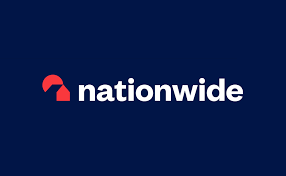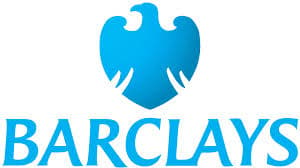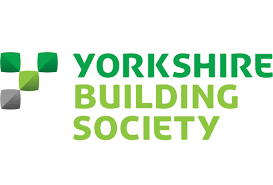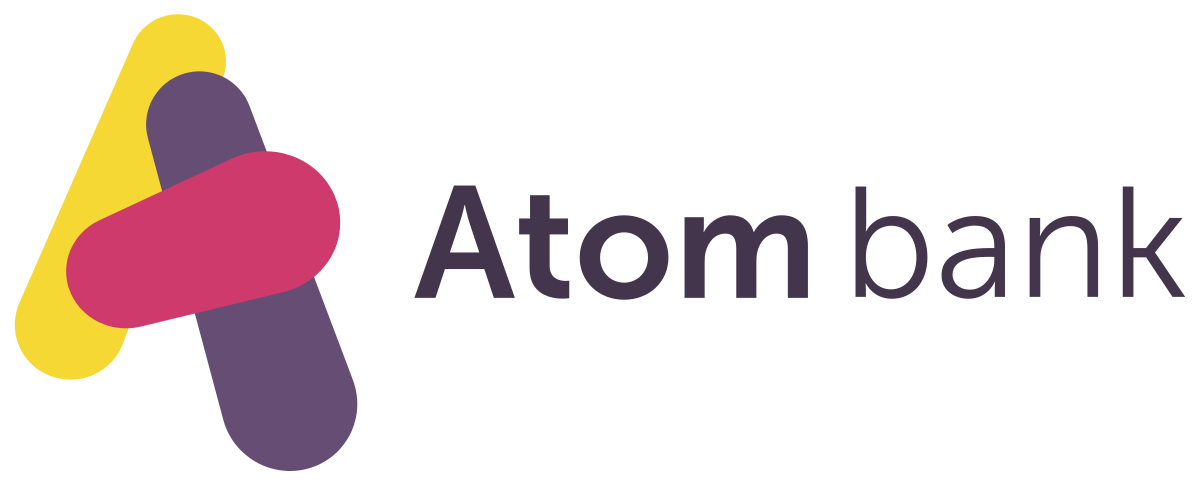Best First-Time Buyer Mortgages UK 2025: Expert Guide to Top Providers
Our first-time buyer mortgage guide compares the top providers in the UK and their key features.
Updated:
When you purchase through links on our site, we may earn an affiliate commission. Here's how it works.

Buying your first home is a milestone you’ll never forget. But before you can start picking out furniture or picturing yourself in your new space, you’ll need to make a big decision: choosing a mortgage lender to work with.
As a first-time buyer, your mortgage provider can significantly affect the costs and overall house-buying experience.
To help you make the best possible decision for your circumstances, we’ve researched some of the top mortgage providers in the UK for 2025 and compared them against key criteria such as interest rates, deposit options, accessibility, flexibility, customer service, and overall value for money.
Here’s our guide to the best first-time buyer mortgages in the UK for 2025.
5 best mortgage companies for first-time buyers in 2025 compared
Below are our top 5 picks for best first-time buyer mortgage companies. Learn more about their features and what each has to offer.
Best for | Our expert score | Maximum loan-to-value (LTV) | Standout features | Application process | |
Nationwide | Buyers on modest incomes | 4.7/5 | Up to 95% | Helping Hand Mortgage: borrow up to 6x income; overpay up to 10% annually | Online or phone application |
Barclays | Family-assisted mortgages | 4.6/5 | Up to 100% (but with family support) | Family Springboard Mortgage (linked savings from family) | Partially online; final steps offline |
Yorkshire Building Society | Low-deposit mortgages | 4.6/5 | Up to 99% | £5,000 Deposit Mortgage, First Home eSaver | Online and branch |
Coventry Building Society | Larger deposits | 4.5/5 | Up to 95% | £1,000 cashback for CV postcode area purchases | Offline application only |
Atom Bank | Bad credit | 4.5/5 | Up to 95% | Near Prime mortgages (accepts multiple county court judgments and defaults); fully digital process | Initial application is via a broker, but you can track progress via app |
1. Nationwide – Best mortgage for first-time buyers on modest incomes

Our expert score: 4.7/5
Pros
- Provides up to 95% loan-to-value (LTV) mortgages
- Helping Hand Mortgage allows borrowing up to 6x income with 5- or 10-year fixed rates
- £500 cashback for first-time buyers
- Additional rewards for energy-efficient homes
Cons
- Some mortgage types available via intermediary only
Nationwide is a leading building society in the UK. It offers several mortgage options for first-time buyers, including fixed-rate, tracker, and interest-only mortgages. Borrowers can conveniently apply for the company’s mortgage products online or over the phone.
You can get a mortgage with a deposit of as little as 5% and repay the loan over 5-40 years. Additionally, Nationwide provides up to £500 cashback when you complete your purchase and an extra £250 to £500 if your new home meets energy efficiency standards.
Why buy? Expert verdict
Nationwide is an excellent choice for homebuyers on modest incomes who may find it challenging to secure enough financing with other lenders to secure their dream home. Its unique Helping Hand Mortgage allows you to borrow up to 33% more (or six times your income) on 5- or 10-year fixed-rate deals, with up to 95% LTV.
For example, if you earn £55,000 and have a 5% deposit, you could borrow up to £330,000 with the Helping Hand Mortgage, compared to £247,000 with a standard home loan.
In addition to this generous borrowing power, Nationwide offers several other perks, including the flexibility to overpay up to 10% of your loan annually without a penalty.
✍️ Have you used this first-time buyer mortgage? Share a rating and review for Nationwide on Review Centre.

Our expert score: 4.6/5
Pros
- Strong online tools and resources for first-time buyers
- Family Springboard Mortgage with up to 100% LTV with security deposit from family member or friend
- Flexible mortgage terms ranging from 5-40 years
Cons
- Can’t complete full mortgage application process online
Barclays is a well-established name in the UK mortgage market. It offers a range of mortgage options to suit various needs, including fixed-rate, tracker, and offset mortgages. Its products are available to not just first-time buyers but also those looking to remortgage. The lender provides loans with up to 95% LTV and terms ranging from 5-40 years, with a minimum loan amount of £5,000.
The bank also provides an extensive suite of online resources, such as first-time buyer guides and mortgage calculators, to help borrowers make informed decisions. For additional support, Barclays’ customer service team is readily available via phone, app, and online channels.
Why buy? Expert verdict
Barclays’ standout offering for first-time buyers is its Family Springboard Mortgage. This unique product lets first-time buyers purchase a home without a deposit if a family member or friend provides 10% of the property value as security in a linked savings account. The savings are returned with interest after 5 years, making it a win-win for everyone involved.
Overall, Barclays’ Family Springboard Mortgage provides a practical and accessible pathway to homeownership for first-time buyers who lack enough savings but have supportive loved ones willing to assist.
3. Yorkshire Building Society – Best mortgage for first-time buyers with small deposits

Our expert score: 4.6/5
Pros
- Choice of fixed-rate mortgages, tracker mortgages, and offset mortgages
- Exclusive £5,000 Deposit Mortgage for first-time buyers, with up to 99% LTV
- Decision in Principle (DIP) available within 10 minutes, without affecting credit score
- First Home eSaver account helps buyers save consistently, with interest paid annually
Cons
- Limited branch network compared to major high-street banks
Yorkshire Building Society’s (YBS) mortgage portfolio includes fixed-rate, tracker, and offset mortgages. Borrowers can repay their loans over terms of up to 40 years. Additionally, borrowers overpay 10% of their outstanding balances each year without incurring a penalty.
YBS also offers practical tools to help buyers understand their borrowing capacity, including a quick Decision in Principle (DIP) that takes as little as 10 minutes and doesn’t impact credit ratings.
To help first-time buyers save for their deposit, the company offers a unique product: the First Home eSaver account, which pays up to 4.70% AER variable annually. You can open the account with as little as £1 and put away as much as £500 per month for up to 2 years.
Why buy? Expert verdict
Yorkshire Building Society is an excellent choice for first-time buyers with stable incomes who struggle to save for a large deposit.
Its exclusive £5,000 Deposit Mortgage, as the name suggests, allows you to get on the property ladder with as little as £5,000 deposit or up to 99% LVT, which is practically unheard of in the mortgage lending space. The program is exclusively reserved for first-time buyers and can be used to purchase properties worth up to £500,000.
✍️ Have you used this mortgage lender? Share a rating or find out what users have to say on our Yorkshire Building Society mortgage reviews page.

Our expert score: 4.5/5
Pros
- Award-winning customer experience
- Wide range of mortgage options for first-time buyers
- £1,000 cashback offer for first-time buyers purchasing in CV postcode area
- Fee-free mortgage options available
Cons
- No online application process
Coventry Building Society (CBS) offers a range of mortgage products for first-time buyers, including fixed-rate and tracker mortgages with various term lengths. Borrowers can also choose from several deposit options, though the most competitive rates are generally available with larger deposits.
The company offers £1,000 cashback for first-time buyers purchasing a home in CV postcode areas. It also provides helpful online tools, such as an affordability calculator, to help borrowers understand how much they can borrow and effectively plan their budgets.
Additionally, Coventry Building Society is known for its fast and responsive customer service. The average waiting time for mortgage inquiries is just 33 seconds.
Why buy? Expert verdict
Coventry Building Society is an excellent choice for first-time buyers who have diligently saved and can make a larger deposit. It offers some of the most competitive low-LTV mortgages on the market. For example, CBS’s 65% LTV mortgages currently have an initial fixed rate between 4.18% and 4.68%, which is currently among the lowest available for this LTV tier.
Along with competitive rates, CBS offers mortgage products with no fees, helping borrowers reduce upfront costs—especially useful for those who’ve already put down a large deposit and have limited funds left for other expenses.
✍️ Have you used this mortgage lender? Share a rating or find out what users have to say on our Coventry Building Society mortgage reviews page.

Expert score: 4.5/5
Pros
- Competitive rates for borrowers with adverse credit histories
- Offers up to 95% LTV mortgages
- Offers no product fee mortgages
Cons
- Mortgages currently available through brokers only
Atom Bank is a fully digital lender offering a range of fixed-rate mortgages for first-time buyers, including 2-year, 3-year, and 5-year terms, with initial rates starting at 5.14% for a 5-year fixed deal (with no product fee). Mortgages are available for up to 95% loan-to-value (LTV), which makes them accessible even for those with smaller deposits.
However, Atom Bank loans are exclusively available through independent brokers. According to the company, this is to ensure you get appropriate advice on the best deal for you. You can use Atom Bank’s Find a Broker tool to locate a broker in your area.
Once the broker has started your application, you can track your progress via Atom Bank’s mobile app.
Why buy? Expert verdict
Atom Bank’s Near Prime mortgages could be a great fit if you’ve struggled to secure a mortgage due to bad credit. For this particular product, the bank doesn’t use credit scoring in its lending assessment. That makes it easier for borrowers who have experienced financial difficulties to qualify for a home loan.
For example, Atom Bank accepts up to four county court judgments (CCJs) issued in the last 3 years—as long as they were issued over 12 months ago and are either satisfied or have a combined unsatisfied value of £1,000 or less. It also accepts up to 4 defaults, provided all were issued over 1 year ago and at least 3 haven’t occurred in the last 2 years.
Additionally, Atom Bank offers competitive rates for its Near Prime mortgages. Initial fixed rates start at 5.44% for a 5-year term at 60% LTV.
Types of first-time buyer mortgages
Here are the common types of mortgages for first-time buyers:
Fixed-rate mortgages
These offer a consistent interest rate for a set period, typically 2-5 years, meaning monthly repayments stay the same. After the term, you move to a potentially higher standard variable rate (SVR).
Tracker mortgages
Tracker mortgages have an interest rate that tracks the Bank of England (BoE) base rate plus a fixed percentage. This means your rate will rise and fall in line with changes to the base rate. That said, tracker mortgages often start with lower rates than fixed deals.
Variable-rate mortgages
With these mortgages, the lender sets a standard variable rate (SVR) that can change anytime during the term. If you’re on another deal, your lender will typically automatically switch you to their SVR once it ends.
Unfortunately, SVRs are often higher than initial rates. To avoid being moved onto an SVR, it’s advisable to switch to a new deal before your current one expires.
Offset mortgages
These mortgages link your savings account to your mortgage. Essentially, your savings ‘offset’ your mortgage balance, so you only pay interest on the difference. For instance, if you borrow £200,000 but have £10,000 in savings with the lender, you’ll pay interest on £190,000.
This setup can significantly reduce interest costs and help you pay the mortgage faster. The tradeoff is you won’t earn interest on your savings during the offset period.
Discounted mortgages
Discount mortgages offer a reduced interest rate for a set period, usually 2-3 years. The discount is applied to the lender’s standard variable rate (SVR), which can change. This option can be cost-effective initially but carries the risk of rising payments if the SVR increases.
Guarantor mortgages
These mortgages involve a family member or friend acting as a guarantor—meaning they promise to cover payments if you default. This arrangement can help you secure a mortgage with better terms or borrow a higher amount, even if you have a small deposit or a weaker credit.
Interest-only mortgages
With an interest-only mortgage, you pay only the interest on the loan each month. The full amount is due at the end of the term. While this can lower your monthly payments, you’ll need a solid plan to repay the principal amount.
What type of first-time mortgage do I need?
Here’s a breakdown of key factors to consider when deciding which mortgage type is best for you:
- Your deposit size: A larger deposit typically qualifies you for better interest rates and more competitive mortgage deals. Smaller deposits may require you to explore specialist options like a guarantor mortgage.
- Your budget and risk tolerance: Consider how much you can repay each month and whether you’re comfortable with your repayments changing. For predictability, choose a fixed-rate plan. If you’re okay with some fluctuation, consider a tracker or discounted mortgage.
- Your long-term plans: If you’re likely to move or remortgage within a few years, a shorter-term fixed-rate deal (e.g., 2 years) or a discounted mortgage might be ideal. Planning to stay long-term? A 5-, 10-, or even 15-year fixed-rate mortgage could provide stability.
- Your savings and financial flexibility: If you have significant savings, an offset mortgage could help reduce the interest you pay over time.
How first-time buyer mortgages work
Below is a brief overview of how these mortgages work.
Who can apply for a first-time buyer mortgage?
Most mortgage lenders require you to meet the following criteria to qualify for a mortgage:
- First-time buyer status: You must not have owned a property, either in the UK or abroad.
- Age: You must be at least 18 (some lenders have a higher minimum age, e.g., 21).
- Income: You need a stable income to prove you can afford repayments. This can include salary, self-employment income, or benefits.
- Deposit: You’ll typically need at least 5% of the property’s value as a deposit, though a larger deposit (10-20%) can usually get you better rates.
- Credit score: A higher credit score can help improve your chances of approval and unlock more competitive rates. However, some lenders specialise in offering mortgages to people with bad credit.
How to start the application process
- Assess your budget: Determine how much you can borrow and repay each month.
- Save for a deposit: Aim for as much as possible, as larger deposits typically mean better rates.
- Check your credit score: See how you’re doing generally, and determine if you can improve it. (Higher credit scores typically mean better rates.)
- Research lenders and mortgage types: Use this guide as a starting point. Compare deals to decide which offers best suit your needs.
- Apply for a mortgage: Once you’ve selected your lender, begin the application process (either online or in person).
What documents do you need?
To complete your application, you’ll need documents like proof of ID, recent bank statements, pay slips or tax returns, and details of your current financial commitments. Lenders use this information to assess your financial stability and ability to make monthly repayments.
How long does the process take?
Securing a mortgage can take anywhere from a few weeks to several months, depending on factors such as the lender’s processing times and the complexity of your application. To speed things up, ensure you have all the necessary paperwork ready and respond promptly to any lender queries.
Who are the biggest first-time buyer mortgage lenders in the UK?
Some of the biggest and most trusted mortgage providers in the UK include:
- Nationwide Building Society
- Halifax
- Barclays
- Lloyds Bank
- HSBC
- Santander
- NatWest
- Yorkshire Building Society
- Skipton Building Society
- Virgin Money
How to choose the best first-time buyer mortgage company
Here are the key factors to consider when choosing a mortgage provider:
Interest rates and fees
Interest rates vary between different providers and products. Even a slight difference can add up to thousands over the mortgage term. Pay attention to the initial and standard variable rates (SVR) after any introductory period. Also, look out for arrangement fees, valuation fees, and early repayment charges, as these can increase the overall cost.
Customer support and guidance
Look for providers known for excellent customer service, as they can help you navigate the paperwork and understand your mortgage terms. Reading online reviews and getting recommendations can give you insight into the provider’s level of support.
Mortgage flexibility
Some providers offer more flexible features, like the ability to make overpayments or take a payment holiday. These features can improve the overall mortgage experience.
First-time buyer incentives
Certain lenders offer incentives aimed at first-time buyers, such as cashback upon completion, free valuation, or assistance with legal fees. These incentives can be appealing but shouldn’t outweigh a competitive interest rate or low fees.
Eligibility criteria
Some lenders are more flexible than others regarding credit scores and employment history. If your credit score is lower or if you’re self-employed, look for lenders known for accommodating these circumstances.
How we created this list
Here are some factors we considered when creating our list of the best first-time buyer mortgages in the UK:
Financial stability and industry reputation
We considered each lender’s financial strength and reputation. This involved reviewing industry reports, financial performance data, and the provider’s standing within the UK mortgage market. We prioritised reliable lenders with strong track records to ensure borrowers dealt with reputable institutions.
Customer reviews
We examined customer reviews from trusted platforms to gain insights into real-world borrowers’ experiences. We evaluated feedback on the mortgage application process, customer service quality, and overall satisfaction.
Transparency
We prioritised lenders that provide clear, easy-to-understand information about their mortgage products, including interest rates, fees, and eligibility criteria.
Online tools and resources
We considered providers that offer easy-to-use digital tools—such as mortgage calculators and affordability checks—to make the mortgage application process quicker and less daunting for first-time buyers.
Additional features
We also assessed extra features that might appeal to first-time buyers, such as fee-free applications, cashback offers, and flexible repayment options.
First-time buyer mortgage FAQs
What deposit do I need for a first-time buyer mortgage?
Most lenders require a minimum deposit of 5% of the property’s value for a first-time buyer mortgage. However, saving a larger deposit (e.g., 10-20%) can help you access better interest rates and terms.
Can I get a mortgage with bad credit as a first-time buyer?
Yes, it’s possible to get a mortgage with bad credit, but your options may be more limited. Improving your credit score before applying can increase your chances of approval and help you secure better terms.
That said, some lenders specialise in mortgages for those with poor credit histories, though you may face higher interest rates or need a larger deposit.
What is the maximum amount I can borrow as a first-time buyer?
The amount you can borrow depends on your income, expenses, credit score and the lender’s affordability criteria. Most lenders use an income multiplier (e.g., 4-4.5 times your annual income) to determine your borrowing limit.
What insurance do I need for a mortgage?
Most lenders require you to have buildings insurance when exchanging contracts. To protect yourself further, you might consider other types of insurance when buying a house, such as content insurance, which covers your personal belongings.
Conclusion
Taking out a mortgage to buy a home is one of the most important decisions you’ll ever make. So, it’s essential to get it right, both in terms of provider and mortgage type.
Remember, it’s not just about finding the provider with the lowest interest rates. It’s also about choosing a loan that fits your lifestyle, priorities and long-term goals.
Hopefully, our guide has provided the information you need to make an informed decision and confidently start your homeownership journey.
